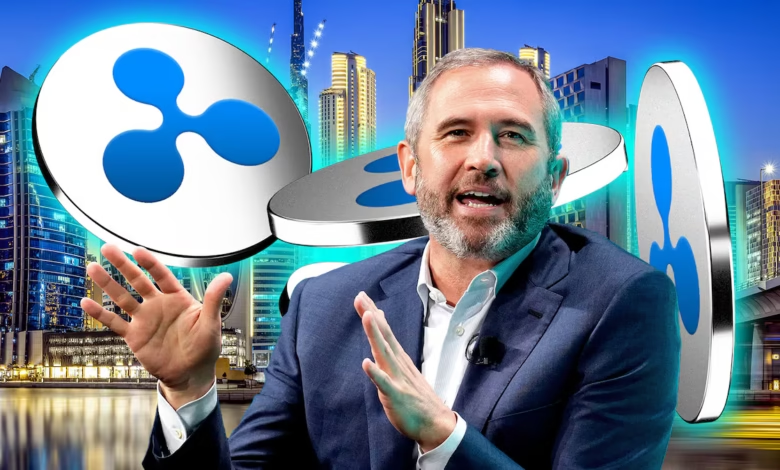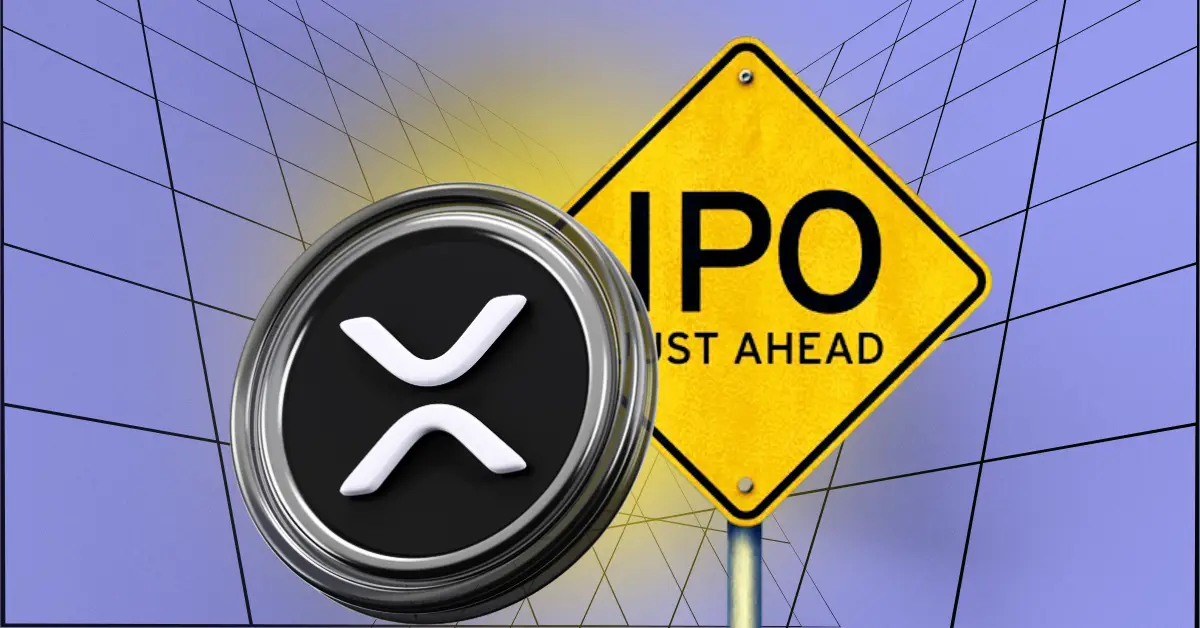Ripple IPO: The Big Leap for Crypto’s Banking Ally

Ripple IPO rumors are heating up. Dive into everything you need to know about Ripple going public, its impact on crypto, investors, XRP holders, and the financial world.
The Buzz Around Ripple IPO
If you’ve been hanging around the crypto space for even a little while, you’ve probably heard the whispers—”Ripple IPO.” It’s more than just a buzzword now. The possibility of Ripple going public has become one of the most talked-about subjects in the financial and crypto sectors. But why all the hype? What makes this move such a big deal?
Well, Ripple has always been a different beast in the crypto jungle. While most crypto projects pride themselves on decentralization, Ripple has long worked alongside traditional financial institutions. That puts it in a unique position—a bridge between the old-school financial world and the new-age blockchain revolution. A Ripple IPO would signal a massive shift, not just for Ripple itself but for the broader perception of cryptocurrencies.
The mere hint of an initial public offering has stirred the market. Some say it could be one of the biggest IPOs in fintech. Others worry it might dilute XRP or change Ripple’s mission. But love it or hate it, the Ripple IPO is coming. And it’s time to get smart about what that means.
What Is Ripple?
Before diving headfirst into the IPO talk, let’s back up for a moment. What exactly is Ripple?
Ripple Labs is a blockchain-based digital payment network and protocol that was co-founded in 2012. Its most famous product? The cryptocurrency XRP. But unlike Bitcoin or Ethereum, Ripple’s main focus isn’t just on being a currency or a smart contract platform. It’s all about fast, low-cost international money transfers.
RippleNet is the network that facilitates these transfers, and it connects banks, payment providers, and digital asset exchanges. In essence, Ripple is trying to replace the outdated SWIFT system that banks have relied on for decades. And it’s been gaining traction—Ripple has worked with institutions like Santander, SBI Holdings, and even PNC Bank.
Ripple is also very business-focused. That makes it different from many crypto projects that often run on community-driven development. And that business focus is exactly why a Ripple IPO makes so much sense.
Why Ripple Might Go Public
The big question: why would Ripple go public at all? Isn’t the whole point of crypto to avoid the stock market and centralized systems?
Yes and no. Ripple’s core vision is to improve financial infrastructure. And to do that effectively, it needs to work within the system, not against it. A Ripple IPO would provide the company with additional capital to scale its operations, develop new products, and expand globally.
Another reason is transparency. As a publicly-traded company, Ripple would be held to higher regulatory and financial disclosure standards. This could boost trust among institutional investors and banks—exactly the partners Ripple is aiming to attract. It’s a strategic move to gain legitimacy and broaden its appeal.
Also, let’s not forget the ongoing SEC lawsuit against Ripple. Some speculate that once that legal hurdle is cleared, the IPO could follow almost immediately. Going public could even help Ripple put the controversy behind it and move forward with a clean slate.
Ripple IPO and XRP: What Happens to the Token?

If Ripple goes public, what does that mean for XRP, the token that made it famous? That’s the million-dollar question.
XRP is not Ripple stock. This is a crucial distinction. When Ripple IPOs, it will issue shares—equity in the company. XRP is a utility token used within the Ripple ecosystem to facilitate transactions. So owning XRP doesn’t mean you own a piece of Ripple.
However, the Ripple IPO could still affect the value of XRP. For one, more publicity around Ripple could drive interest in XRP. Also, if Ripple gains more institutional partners after the IPO, demand for XRP could rise since it’s used as a bridge currency in transactions.
But there are risks too. If Ripple focuses more on its shareholders post-IPO, will it sideline XRP? Some investors fear that going public could shift Ripple’s priorities away from developing the XRP ecosystem. That’s a valid concern and something to watch closely.
The Timeline: When Could Ripple IPO Happen?
As of now, there’s no official date for a Ripple IPO. But there are signs it’s getting closer.
Ripple CEO Brad Garlinghouse has dropped hints since 2020 about the company going public. In a 2023 interview, he mentioned that Ripple would consider an IPO once the SEC lawsuit is resolved. Fast forward to 2025, and the noise is getting louder.
Insiders suggest Ripple is already preparing behind the scenes. Hiring sprees, board-level conversations, and increased transparency all point to a company gearing up for a public debut. It’s not a matter of if but when.
Analysts speculate that the Ripple IPO could happen by the end of 2025 or early 2026. Of course, this timeline depends on legal and regulatory factors, but the writing is on the wall.
How the Ripple IPO Could Impact the Crypto Market
A Ripple IPO wouldn’t just affect Ripple and XRP. It could send ripples (pun intended) across the entire crypto market.
First, it would legitimize blockchain technology in the eyes of traditional investors. Think about it—when a crypto company goes public, it invites Wall Street into the blockchain conversation. That could lead to more investment, more development, and more adoption across the board.
Second, it could spark a wave of IPOs from other crypto companies. If Ripple succeeds, others like Chainlink, ConsenSys, or even Binance might follow suit. That could dramatically reshape how the world interacts with crypto.
On the flip side, it could also bring more regulation. Going public means more scrutiny, and that could extend to other projects. Still, for most crypto veterans, this trade-off might be worth it if it means mass adoption.
Ripple’s Business Model and Financials
Understanding Ripple’s business model helps clarify why an IPO makes strategic sense. Ripple makes money through several streams:
- RippleNet transaction fees
- Enterprise software licensing
- Selling XRP from its reserves
These revenue streams provide a solid financial foundation. Reports suggest Ripple has been profitable for multiple quarters. The company also holds a large amount of XRP, which acts as a kind of asset reserve.
An IPO could help Ripple further monetize its existing services and launch new products. It’s a way to raise capital without relying entirely on XRP sales—a smart move in a volatile crypto market.
Table: Ripple vs Traditional Financial Networks
| Feature | Ripple | SWIFT |
|---|---|---|
| Speed | Seconds | Days |
| Cost | Low | High |
| Transparency | High | Low |
| Settlement | Real-time | Delayed |
| Crypto Integration | Yes | No |
What Investors Should Know About the Ripple IPO
If you’re thinking about jumping on the Ripple IPO train, there are a few things you need to keep in mind.
First, investing in Ripple stock will be different from buying XRP. Ripple shares represent equity—meaning you’ll own part of the company. XRP is a utility token, not a share. This difference will be crucial when making investment decisions.
Second, the IPO could be a great entry point for traditional investors who’ve been wary of crypto. Ripple’s ties to traditional finance might make it more palatable for conservative portfolios.
However, risks abound. The regulatory landscape is still evolving. Any future lawsuits or unfavorable regulations could impact Ripple’s stock. Always do your due diligence before investing.
The Legal Battle With the SEC
No Ripple IPO discussion would be complete without touching on its legal drama. The SEC sued Ripple Labs in December 2020, claiming that XRP is a security and that Ripple conducted an unregistered securities offering.
This lawsuit has cast a long shadow over Ripple’s plans. But there’s been some light at the end of the tunnel. As of mid-2025, court decisions have started favoring Ripple, and settlement talks are reportedly in progress.
A favorable outcome could clear the runway for a Ripple IPO. But even if the lawsuit ends with some penalties, the fact that Ripple weathered this storm speaks volumes about its resilience.
Ripple IPO vs Coinbase IPO

When Coinbase went public in 2021, it was a huge moment for crypto. A Ripple IPO could be even bigger, albeit in a different way.
Coinbase is a crypto exchange—its revenue depends on trading volume. Ripple, on the other hand, is a financial technology company with a focus on cross-border payments. That gives it a different market appeal.
Also, Ripple has been more tightly linked to institutional finance. This could attract a different kind of investor—those looking for exposure to blockchain without the wild volatility of exchanges or tokens.
Expert Opinions on Ripple IPO
Industry insiders are keeping a close eye on Ripple’s IPO plans. Many see it as a landmark event.
“If Ripple goes public, it could redefine how Wall Street views crypto,” says Angela Sanders, a fintech analyst. “It would signal that blockchain has matured and is ready for prime time.”
Others are more cautious.
“Ripple’s IPO is exciting, but we need to see how they balance shareholder expectations with their crypto roots,” notes Victor Hale, a blockchain consultant.
Regardless of the viewpoint, everyone agrees: this is one to watch.
FAQs About Ripple IPO
What is Ripple IPO?
A Ripple IPO refers to Ripple Labs becoming a publicly traded company by offering its shares to the public through an initial public offering.
When will Ripple IPO happen?
There is no official date, but analysts predict the Ripple IPO could take place by the end of 2025 or early 2026, especially after resolving its legal issues with the SEC.
Will XRP price go up after Ripple IPO?
It’s possible. Increased attention and legitimacy could boost XRP’s value, but the token’s performance will depend on broader market conditions and Ripple’s post-IPO strategy.
Can I buy Ripple stock now?
Not yet. Ripple is currently a private company. Once it files for an IPO and gets listed, you’ll be able to buy its shares through a stock exchange.
Is XRP the same as Ripple stock?
No. XRP is a cryptocurrency used within the Ripple network. Ripple stock represents ownership in the Ripple company.
Why is Ripple going public?
Ripple wants to raise capital, expand globally, and increase transparency. Going public helps them achieve all that while attracting more institutional partners.
Will the Ripple IPO impact the entire crypto market?
Yes. A successful IPO would likely boost credibility for the entire crypto industry and could pave the way for more blockchain-related IPOs.
Conclusion: Ripple IPO Is a Game Changer
The Ripple IPO isn’t just another company going public. It’s a milestone for the entire crypto industry. Ripple stands at the crossroads of traditional finance and blockchain innovation. Going public could cement its role as a leader in this evolving landscape.
Whether you’re a crypto investor, a fintech enthusiast, or someone just curious about what’s next in finance, keep Ripple on your radar. The IPO could change everything—and it’s closer than you think.





